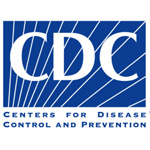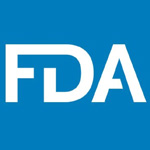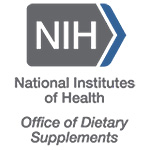Creatine
(Creatine monohydrate)
What is it?
Creatine is a naturally occurring substance in the human body and is stored primarily in the muscles in the form of phosphocreatine.
Does it occur naturally in the body?
Your kidneys, liver and pancreas make about 1 to 2 grams of creatine every day.
What are the claims?
THE SIMPLE ANSWER: Creatine monohydrate helps replenish adenosine triphosphate (ATP).
THE TECHNICAL ANSWER: Your body breaks ATP into adenosine diphosphate (ADP) and inorganic phosphate. This reaction releases energy to fuel explosive, short bursts of strength.
The problem is ADP by itself is useless as a source of energy until it regains a phosphate atom.
When you take in creatine monohydrate (CM), it helps increase the levels of creatine phosphate (CP) in muscles, which react with ADP, frees the phosphate from creatine and bonds with ADP to create ATP.
Then your body can break down the ATP back into ADP for more explosive strength. Got it?
Does it work?
Results are finally conclusive. Yes, creatine does build muscle and strength.
Many of the studies conducted over the years since creatine hit the bodybuilding world have been too limited or from dubious sources. The only real way to know for sure if creatine monohydrate is increasing creatine phosphate in the muscle is by doing muscle biopsies and measuring how various doses and methods of administering the supplement affect the levels.
A team of Australian researchers did just that.
Their results showed it takes only 2 to 5 grams per day of creatine monohydrate to maintain optimal levels of creatine phosphate in muscles.
Additional research has shown that taking whey protein and creatine monohydrate together boost strength and muscle mass more than taking supplements with creatine alone or whey protein alone.
Faster Recovery: After a tough workout, recovery is key. Creatine helps replenish energy stores in your muscles more quickly, so you’re ready to hit it hard again the next day. Some research also suggests it can reduce muscle damage and inflammation, speeding up recovery.
Support Brain Health: Creatine isn’t just good for muscles. Studies have shown that creatine supplementation may improve cognitive performance and help with mental clarity and focus, particularly in tasks that require short bursts of mental energy. So, if you’re working long hours or need to stay sharp, creatine might also give your brain a little boost.
There’s a bonus for Post-Menopausal Women: As estrogen levels drop, women naturally lose muscle mass and strength. Creatine can support muscle retention and even improve bone health. A study published in the Journal of Clinical Endocrinology & Metabolism showed that creatine supplementation could help improve muscle strength and function in post-menopausal women, making it a valuable ally as we age.
For those of you considering "buffered" creatine, which can cost twice as much as traditional creatine, don't bother. Researchers at Texas A&M University found that buffered and traditional creatine formulations are absorbed in exactly the same way and provide the same end result. Buffered is no better, just more expensive.
What are the dangers?
The results of 3-year studies are now in, and it looks good.
Scientists have documented that people who take creatine supplements do experience increased levels of creatinine (a byproduct of renal failure).
To find out if those increased levels of creatinine were harming the liver or kidneys, Truman State University researchers tested college football players who routinely took 5 to 20 grams of creatine monohydrate daily for up to five years. The results of the study showed the athletes had no evidence of kidney or liver damage based on the results of standard blood tests.
Since these tests were conducted on healthy subjects, if you have kidney disease or are at high risk for kidney problems (such as a diabetic), we still believe you should not take creatine unless prescribed by a doctor.
WARNING: The following information is specifically for people with sickle cell anemia.
Sickle Cell Anemia is an inherited condition where the normal round red blood cells are instead shaped like a crescent moon. Instead of moving easily through the body, sickled cells can get stuck and block blood vessels, stopping oxygen from getting through. This can cause pain as well as organ, muscle and bone damage.
There is some evidence that people who take creatine supplements that also have sickle cell anemia may be at increased risk for a rare condition called Rhabdomyolysis.
Rhabdomyolysis is clinically referred to when there is evidence of muscle damage (typically severe) and is usually associated with kidney dysfunction.
Triggers for a sickle cell event include cold temperatures, dehydration, and too much exercise. Low oxygen caused by cigarette smoke, high altitude, and plane flights are other common triggers.
Here's the working hypothesis. If someone has sickle cell anemia, increased levels of exercise can trigger episodes where not enough oxygen gets to the muscles that need it. Add creatine, which has the potential to negatively affect kidney function, and the twin stresses can create a potentially fatal combination.
If you have been diagnosed with sickle cell anemia, you should NOT take creatine unless it is approved by a doctor. Sickle cell anemia is found in 1 out of every 12 African Americans and can be diagnosed with a simple blood test. If you are unsure, you should have yourself tested.
The Bottom Line
The results are good for nearly everybody. Muscle gains can now be directly attributed to creatine intake in doses as low as 2 to 5 grams a day, particularly when combined with a whey protein.
If you are looking for a supplement to help build muscle AND you don't have risk factors for kidney or liver disease, AND you have not been diagnosed or are at risk for sickle cell anemia, you might consider talking to your doctor about the possibility of adding creatine monohydrate as a regular supplement.
Links for More Info
| Centers for Disease Control and Prevention http://www.cdc.gov/ |
|
| United States Food and Drug Administration (FDA) http://www.fda.gov/ |
|
| Herbs, Botanicals & Other Products - Extensive Information from the Memorial Sloan-Kettering Cancer Center https://www.mskcc.org/cancer-care/diagnosis-treatment/symptom-management/integrative-medicine/herbs |
|
| National Center for Complementary and Integrative Health - Overviews on Herbal Treatments and Supplements https://www.nccih.nih.gov/health/herbsataglance |
|
| National Institutes of Health http://www.nih.gov/ |
|
| National Institutes of Health - Office of Dietary Supplements https://ods.od.nih.gov/ |
|
| Operation Supplement Safety https://www.opss.org/ |
|
| United States Department of Agriculture http://www.USDA.gov/ |
|
| WebMD - Helping you make better decisions for life. http://www.webmd.com/ |
|
We at WeBeFit DO NOT recommend ANY supplements to ANY of our clients. ONLY a licensed Nutritionist or Medical Doctor can make those recommendations based on your individual needs.
This is being provided for INFORMATIONAL and EDUCATIONAL purposes only.
CAUTION: These supplements have not been evaluated by the Food and Drug Administration (FDA) for safety, effectiveness or purity. There may be unknown risks associated with taking any supplements. There are no regulated manufacturing standards for companies that make supplements. There have been instances where herbal or health supplements have been sold that were contaminated with toxic substances. If you should choose to purchase herbal or health supplements, please only purchase them from a reliable source to minimize the risk of contamination.
If you should decide to use ANY supplement, ALWAYS consult your doctor or Nutritionist first.
7/3/2005
Updated 10/29/2008
Updated 1/5/2013
Updated 2/16/2025











